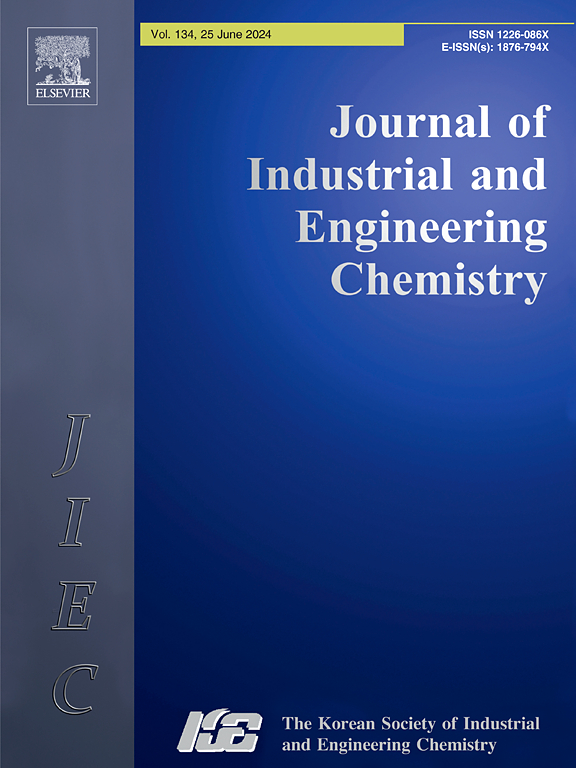A hybrid framework of first-principles model and machine learning for optimizing control parameters in chemical processes
IF 5.9
3区 工程技术
Q1 CHEMISTRY, MULTIDISCIPLINARY
Journal of Industrial and Engineering Chemistry
Pub Date : 2025-01-25
DOI:10.1016/j.jiec.2024.07.018
引用次数: 0
Abstract
Artificial intelligence (AI) has recently gained prominence for addressing complex problems in chemical plants. Despite its enthusiastic attention, the industrial application of AI is limited due to a lack of both reliability and diversity in its operation data at the plant scale. To address this issue, a framework that integrates the machine learning (ML) model and first-principles approach is proposed herein. The performance of the proposed framework is demonstrated by its application to the control system of the liquefied natural gas fuel gas supply system. In this framework, commercial simulation software was used to implement a high-accuracy first-principles model using operation data. Thereafter, a wide range of data was generated that cannot be obtained in an industrial plant. The generated data was fed to the ML model that predicted the control performance with variations of the control parameters. The ML model, built with high-quality data, can predict the control performance with high accuracy. The optimal control parameters were quickly found using the ML model, thereby improving the control performance. This study presents a solution that can overcome the limitations of using an ML model alone by exploiting the advantages of both the first-principles and data-driven approaches at the plant scale.

用于优化化学过程控制参数的第一原理模型和机器学习混合框架
人工智能(AI)最近在解决化工厂的复杂问题方面获得了突出的地位。尽管受到了热烈的关注,但由于其在工厂规模上的运行数据缺乏可靠性和多样性,人工智能的工业应用受到限制。为了解决这个问题,本文提出了一个集成机器学习(ML)模型和第一性原理方法的框架。通过对液化天然气燃料供气系统控制系统的应用,验证了该框架的有效性。在此框架下,利用商业仿真软件利用运行数据实现高精度第一性原理模型。此后,产生了大量工业工厂无法获得的数据。生成的数据被馈送到ML模型,该模型预测控制参数变化的控制性能。基于高质量数据构建的机器学习模型能够以较高的精度预测控制性能。利用ML模型可以快速找到最优控制参数,从而提高控制性能。本研究提出了一种解决方案,通过在工厂规模上利用第一原理和数据驱动方法的优势,可以克服单独使用ML模型的局限性。
本文章由计算机程序翻译,如有差异,请以英文原文为准。
求助全文
约1分钟内获得全文
求助全文
来源期刊
CiteScore
10.40
自引率
6.60%
发文量
639
审稿时长
29 days
期刊介绍:
Journal of Industrial and Engineering Chemistry is published monthly in English by the Korean Society of Industrial and Engineering Chemistry. JIEC brings together multidisciplinary interests in one journal and is to disseminate information on all aspects of research and development in industrial and engineering chemistry. Contributions in the form of research articles, short communications, notes and reviews are considered for publication. The editors welcome original contributions that have not been and are not to be published elsewhere. Instruction to authors and a manuscript submissions form are printed at the end of each issue. Bulk reprints of individual articles can be ordered. This publication is partially supported by Korea Research Foundation and the Korean Federation of Science and Technology Societies.

 求助内容:
求助内容: 应助结果提醒方式:
应助结果提醒方式:


